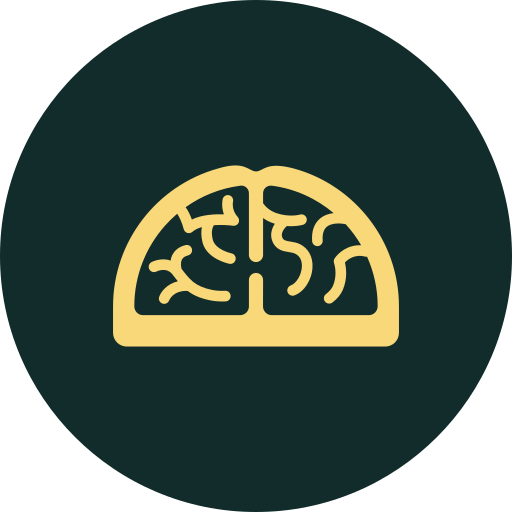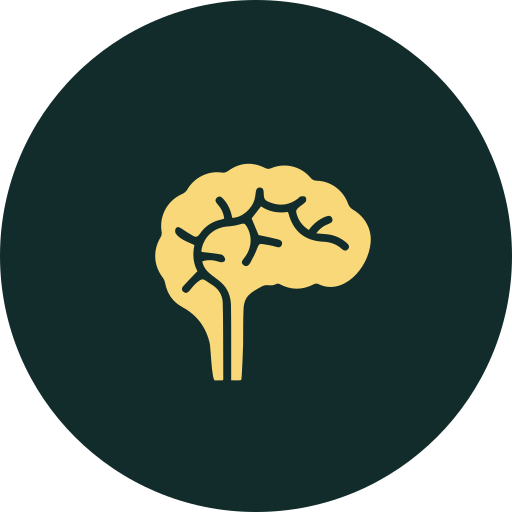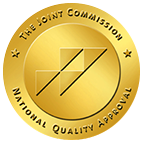
The Relationship Between Alcoholism & Dementia




What Is Dementia?
Dementia is the general term for the impaired ability to make decisions, think, or remember. This disease affects your memory, problem-solving skills, language skills, and more.
Most people assume that dementia comes with age, but that is not true. The most common form of dementia is Alzheimer’s disease. There are various forms of dementia in addition to Alzheimer’s, such as Lewy Body Dementia, Frontotemporal Dementia, and more.
Symptoms of Dementia
Dementia looks different for everyone, but in general, someone with dementia may exhibit communication and attention problems.
- Issues with reasoning
- Issues with problem-solving
- Disruption in visual perception
- They start to forget old memories
- Unable to complete specific daily living tasks on their own
If you notice your loved one is having a hard time with judgment and they get lost in their neighborhood, there is a chance they may have dementia. The only way to know for sure is to have a reputable doctor give your loved one a medical exam.
What Causes Dementia?
Dementia happens when there is damage to your brain cells. The damage to the brain cells makes it hard for certain parts of your brain to communicate with other healthy cells properly.
Different kinds of dementia are associated with damage inflicted upon certain parts of the brain. For example, Dementia with Lewy Bodies occurs when there are protein deposits in the cortex part of the brain.
Alcohol-Related Dementia
Did you know that prolonged and excessive use of alcohol can lead to permanent damage to your brain’s functions and structure? There are two diagnostic systems for those who experience alcohol-related memory, learning, and cognitive impairments: Wernicke-Korsakoff syndrome (WKS) and alcohol-related dementia (ARD).
When your memory is affected by alcohol, it is more challenging to remember things already learned and learn new information. According to the Diagnostic and Statistical Manual of Mental Disorders, a person who has alcoholic-related dementia may exhibit memory impairment and other related cognitive impairments.
Other cognitive impairments:
- Apraxia: Inability to perform specific physical actions
- Agnosia: Failure to recognize sounds, people, objects, even with functional senses
- Aphasia: loss of ability to understand or use written or spoken language
- Executive Functioning Deficits: inability to organize, think, or plan abstractly
It is still unclear what level of drinking may pose a risk for developing alcohol-related memory loss. However, both of these conditions are still extremely dangerous and can even be fatal. If you believe that you or your loved one suffers from alcohol-related dementia, contact your doctor immediately or call 911.
Alcoholism and Dementia
As you now know, there is a connection between alcoholism and dementia. Alcohol damages your brain in many different ways, and these effects can either be short-term or long-term.
Short term effects of alcoholism include:
- Memory issues
- Poor judgment
- Possible loss of consciousness
- Loss of coordination
These effects typically happen after binge drinking. Long-term damages sometimes aren’t as apparent as the short-term effects.
Long-term effects of alcoholism include:
- Learning disabilities
- Permanently reduced coordination and balance
- Brain shrinkage (atrophy)
These long-term effects are sometimes referred to as alcohol-related dementia. Some people confuse the long-term effects with the short-term effects, or they may not be aware of their symptoms.
Wernicke-Korsakoff Syndrome
Wernicke-Korsakoff Syndrome, also known as WKS, is a disorder where your brain lacks thiamine. This disorder happens to anyone if they are malnourished, but this more commonly happens to those addicted to alcohol.
This is because people eat poorly, and the alcohol consumed interferes with thiamine absorption. WKS is made up of two disorders that occur together: Korsakoff Syndrome and Wernicke’s Encephalopathy.
In general, Wernicke’s Encephalopathy develops first, and patients exhibit ataxia and confusion, and disorientation. They may also exhibit eye abnormalities such as repetitive and uncontrollable eye movements.
The main symptom of this disease is severe short memory impairment. Someone may have a conversation where they learn new information, but they forget about it about an hour later. Because someone with WKS can engage in conversation, they may seem normal. The patient may not even be aware of the problem until later.
Other symptoms:
- Weakness in limbs
- Low blood pressure
- Rapid heartbeat
- Permanent nerve damage
- Lost sense of smell
In some circumstances, WKS is potentially reversible. On the other hand, about 20% of people diagnosed with Wernicke-Korsakoff syndrome may not recover fully.
Causes of Alcohol-Related Dementia
There is currently a lot of debate what the causes of ARD are. Many scientists debate the extent to which alcohol alone damages the brain instead of damage caused by a thiamine deficiency.
It is possible that alcohol on its own can cause dementia because alcohol is a toxin that affects your brain in several different ways. As mentioned earlier, this affects the brain through atrophy or the shrinkage of your brain.
MRI scans of your brain can show that alcohol abuse causes certain parts of your brain to shrink over time. This shrinkage could be the culprit for dementia.
Shrinkage in Specific Brain Areas
Shrinkage in certain parts of your brain can cause dementia. As stated above, the area where there is damage determines the type of dementia. For example, damage in the hippocampus part of your brain, which is heavily associated with memory and learning, is linked to Alzheimer’s Disease.

Frontal Lobe
Excessive drinking can cause your frontal lobes to shrink. Heavy drinkers usually have a shrinkage of about 11% in this area. Your frontal lobes are essential for language, executive function, and voluntary movement.

Cerebellum
Your cerebellum controls your movement and balance. Those who drink heavily may see shrinkage in this area. They may experience issues with delayed movement and balance issues.

Corpus Callosum
Your corpus callosum enables your brain’s right and left hemispheres to communicate. Shrinkage in this area can significantly affect the processing speed of your brain. When this area is damaged, it is harder for your brain to communicate.
Those who abuse alcohol often have liver damage, affecting brain function and metabolism. People addicted to alcohol also have a tendency to fall often, which can cause trauma to the head.
Diagnosing Alcoholic Dementia
In order for you or someone you love to receive a diagnosis of alcohol-related dementia, you would need to meet four requirements. For one, there must be a memory impairment, and at least one of the four categories of cognitive impairment set out by the DSM-V criteria.
Second, the cognitive deficits must cause significant problems in social settings or at work. Third, the cognitive deficit must persist well after withdrawal from alcohol. Lastly, evidence from a physical exam, personal history, or tests shows that other health-related problems do not cause cognitive deficits.
Alcoholic Dementia Treatment Plans
The best treatment for alcoholic dementia is to be completely abstinent from the substance. If the individual still has an addiction to alcohol, treatment for the addiction is the first step. There are many different forms of help available.
Most alcohol addiction treatments start with detoxification, also known as alcohol detox. There are a wide variety of sedative drugs available for use that can help manage alcohol withdrawal symptoms. Of course, you must use these drugs under supervision at a licensed facility.
Common medications used to treat alcohol addiction are:
- Disulfiram
- Naltrexone
- Baclofen
- Topiramate
Everyone’s treatment plan will look different, so your facility may or may not use these drugs to help with your addiction treatment plan.
Can You Reverse Alcohol-Induced Dementia?
Unlike most other forms of dementia, evidence shows that alcohol-induced dementia may be reversible if one abstains from drinking alcohol. Some patients noticed improvements within one month of abstinence and mild results after approximately six months.
However, there are others who won’t see results for several years. The scale and speed of recovery depend mainly on the sex and age of the patient. For some, recovery is not possible. Everything depends on the patient, their alcohol intake, age, sex, and other factors that must be determined by a licensed professional.
Alcohol Addiction Treatment
As mentioned earlier in this article, the first step in treating alcohol-related dementia is first to tackle the alcohol addiction portion. It would be best to go with a treatment facility that focuses mainly on alcohol addiction.
There are facility treatment centers that focus on different types of drug addictions, so make sure you pick one specializing in what you or your loved one needs.

Decide on Your Rehab Goals
Of course, everyone’s main goal when going to an addiction treatment center is to overcome their addiction. For others, it could be to figure out what is causing them to use.
For example, maybe it is depression that is causing you to abuse alcohol. Perhaps it’s anxiety or previous trauma that you need to address. It is best to figure out your result goals before deciding on a treatment center.

Look at the Reviews
Once you have an idea of a few treatment facilities, you should take a look at their reviews. Be sure to check out third-party reviews from sites like the Better Business Bureau or Google. Looking at what patients liked and did not like about the facility should help you decide which addiction treatment center to go to.

Consult With a Treatment Provider
An excellent way to find your treatment options and find a treatment facility that matches your rehab goals is to reach out to a treatment provider. There are many different facility options out there that can easily overwhelm you, especially if you aren’t sure where to go.
These treatment providers know about different facilities and can provide you with the information you need to make your final decision. They also have the ability to discuss the different available treatment options, and they can connect you with those addiction treatment centers.
Factors to Consider
When choosing the right facility for your needs, there are some factors you will need to keep in mind. For example, you will need to consider inpatient and outpatient treatment options.
Inpatient Treatment
Inpatient treatment is when you stay at the addiction treatment facility for the entirety of your treatment program. Inpatient is very helpful for those who have severe problems with alcohol or drugs, and it is especially ideal for those with other behavioral health conditions.
Living at the treatment facility helps to avoid influences and temptations that trigger substance abuse. Patients have 24-hour access to support and intensive care when needed with inpatient facilities.
As mentioned earlier, the first step to most substance abuse treatment plans is detox. While at the facility, patients will have licensed professionals there to assist with the medical detox.
Outpatient Treatment
Outpatient treatment is relatively similar to inpatient treatment, but the significant difference is that you have the opportunity to go back home. You will have a set treatment plan that requires you to drive to the facility for therapy, treatment, or group sessions.
Those who choose outpatient treatment go back home after treatment so that they can keep up with their jobs, take care of their children, and stay on track in school. On average, outpatient treatments cost less than inpatient treatment, but the level of support may be less intensive.
If you choose to go the outpatient route, there are some things you will need to consider. If you experience constant urges to use substances, then outpatient may not be the best option for you. Most outpatient locations are not 24 hours and do not always offer round-the-clock support.
If you are someone who already has a hard time going to group sessions on your own, you may benefit from an inpatient facility. Although outpatient locations give you the flexibility to still live at home, you must still find time to come to the facility for treatment. If you need more monitored and structured treatment, you may want to consider inpatient treatment.
Another factor to consider is if you have multiple disorders that need treatment. Some outpatient centers may not be able to administer medications or offer multi-faceted programs for complicated addictions. With this said, it may be best for you or your loved one to opt for an inpatient center to help treat alcohol-related dementia.
Paying For Alcohol-Related Dementia Treatment
The answer to this question will depend on your insurance company. There are insurance companies that will cover the medical expenses related to inpatient or outpatient treatment. The best way to find out if your medical insurance covers alcohol-related dementia treatment is to give them a call.
Your medical insurer should be able to let you know what they cover and how much coverage you have. It is important to note that some insurance companies may only cover up to a certain amount of treatment time. That should not be a problem, though. Many treatment centers can work around your budget while still providing you with the treatment you need.
Length of Program
Speaking of the length of time that your insurance would cover for treatment, let’s get into the length of your treatment programs. Most treatment programs last up to ninety days. Of course, you have the option to go through with the program for one month, two months, or for as long as you need.
Once you consult with your treatment facility about your needs, they should be able to let you know how long you should stay in treatment. Most experts recommend at least 60 to 90 days of treatment so that you have an adequate amount of time to work through your substance abuse issues. There are many 30-day programs that boast fantastic track records of success; it just depends on the facility.
Cost of Treatment
As stated earlier, inpatient treatment programs tend to cost more than outpatient treatment programs. For many people, the cost is the most significant factor in choosing their facility. Of course, the cost of rehabilitation varies depending on the facility, type of program you participate in, and the length of your stay.
There is no need to worry about the cost, as many treatment centers are willing to work around your budget. The goal is to make sure that you get back on your feet and get the treatment you need. It is also very important to remember that the financial toll of long-term addiction is way more significant than the cost of going to a treatment facility.
Location of the Facility
Many people battle the idea of either going to a facility close to home or far away from home. Most prefer to go to a location far from home to avoid their triggering environments. Some prefer to stay close to home so that they can be closer to family or because they have other obligations like work or school.
It is highly beneficial for a patient to go to a far rehab center so they can break the connection between their former life to who they want to be. There may be toxic relationships or routines that may trigger someone to abuse substances.
Of course, the location of the facility you decide to go to depends entirely on your situation and what you prefer. Those who choose to stay close may want to stay close to family so that they can do family therapy sessions. These sessions help the patient’s family learn how to identify triggers or what they can do to support their loved ones.
Enroll in Your Program
Once you have ruled out what type of treatment you need, where you wish to go, and if your insurance covers your treatment plan, it is time to enroll! Every alcohol and drug facility has its own set of procedures and policies for enrollment, so make sure to reach out to them before applying.
Get the Help You Need
Now that you are more aware of the link between alcoholism and dementia, it is time to get the help you or your loved one needs. Getting the help you need is a huge step that takes a lot of courage and grit to start and follow through with.
If this is you, congratulations on seeking out information on how to help yourself. If you have more questions about alcohol-related dementia or if you are ready to start your journey, contact us now. Our team is fully prepared to answer any questions you have about treatment and the options available to you.
TAKE THE FIRST STEP
From all of us at New Method Wellness co-occurring treatment center, we wish you peace and serenity in knowing that you or your loved one will get the necessary help.
ACCREDITED BY:

